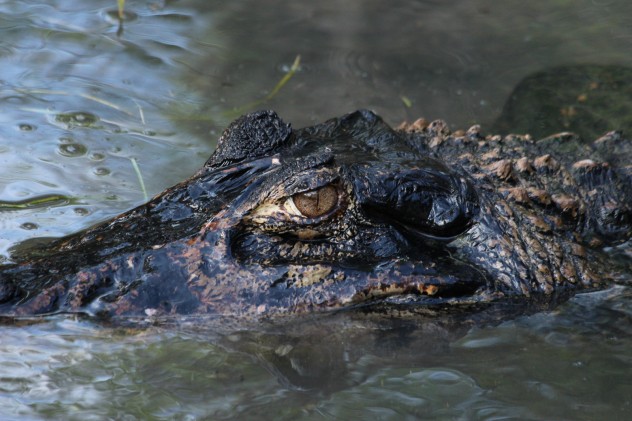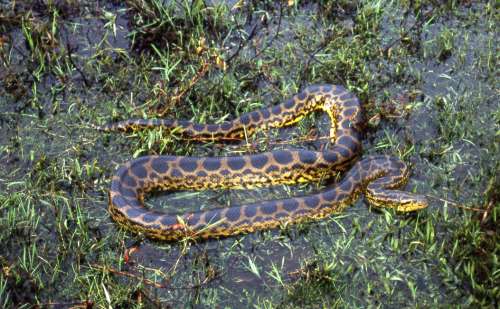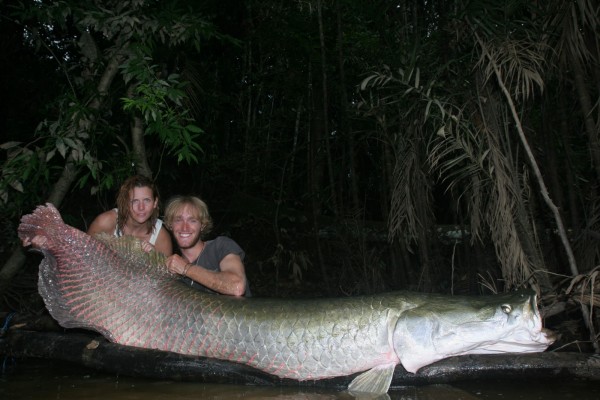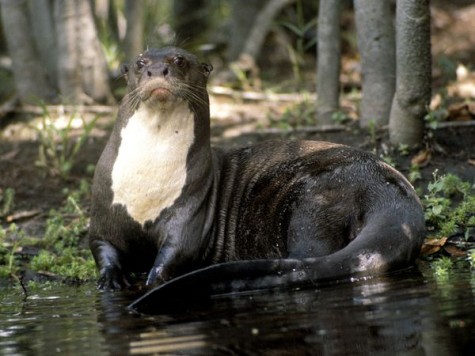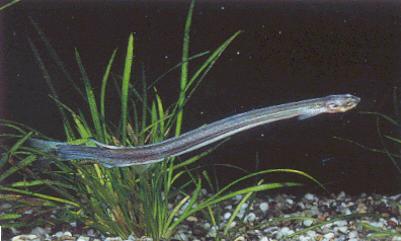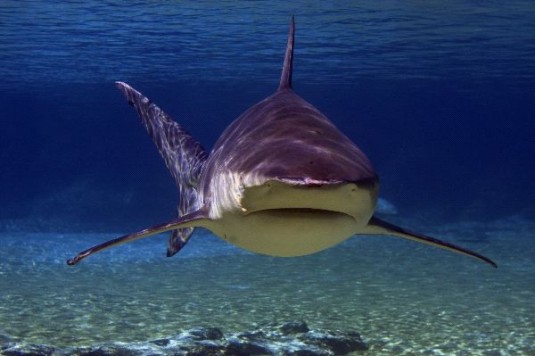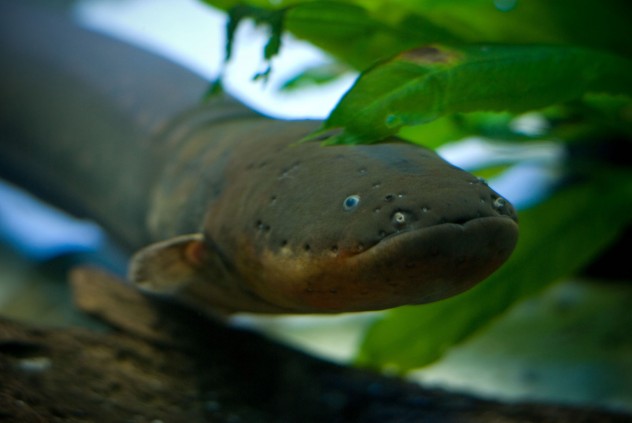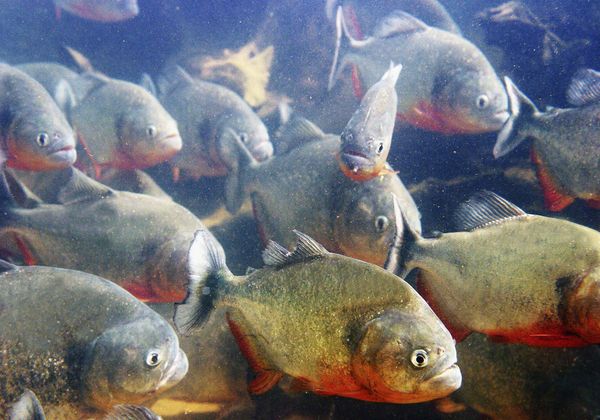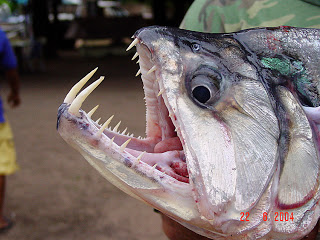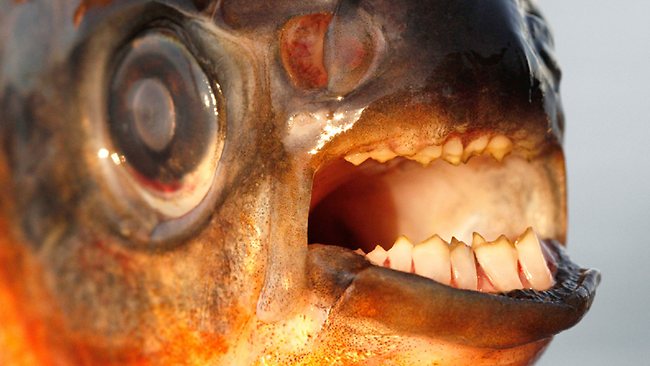10Black Caiman
Oh, and yes, they totally attack humans. In 2010, a biologist named Deise Nishimura was attacked by a caiman while cleaning a fish on her houseboat, and while she managed to fight it off, it took one of her legs with it. This particular caiman had been living under her houseboat for eight months, evidently waiting for the chance to strike.
9Green Anaconda
8Arapaima
7Giant Otter
6Candiru
5Bull Sharks
4Electric Eels
Electric eels are actually more closely related to catfish than eels, but you probably wouldn’t want to get close enough to one to find out. They can grow up to 2.5 meters (eight feet) long and can produce jolts of electricity from specialized cells called electrocytes arranged down their flanks. These charges can reach up to 600 volts, five times the charge of an average American plug socket, and enough to knock a horse off its feet. While one shock isn’t enough to kill a healthy adult human, multiple shocks can cause heart or respiratory failure, and it’s common for people to be stunned and drown after an eel attack. Many of the disappearances recorded in the region have been attributed to eels that have stunned their victims and left them to drown in the river. Luckily for our species, the eels, while carnivorous, tend to stick to eating fish, amphibians, birds, and small mammals. They locate their prey by sending out small, 10-volt shocks from their electrocyte cells, before stunning or killing them with larger shocks.
3Red-Bellied Piranhas
2Payara (Vampire Fish)
Anything with the name “vampire fish” should automatically be recognized as scary (even after Twilight), and payara are no exception. They are absolutely ferocious predators, capable of devouring fish up to half their own body size. Given that they can grow up to 1.2 meters (four feet) long, this is no mean feat. A large part of their diet is made up of piranhas, which should give you some idea of how tough these fanged fiends can be. They get their name from the two tusks that sprout from their lower jaw, which can grow up to 15 centimeters (six inches) long and which they use to literally impale their prey after viciously lunging at them. Their fangs are so big, in fact, that they have special holes in their upper jaw to avoid impaling themselves.
1Pacu
Matthew is unemployed and writes to pretend he is useful to society. You can find his short (and sometimes funny) stories here.
